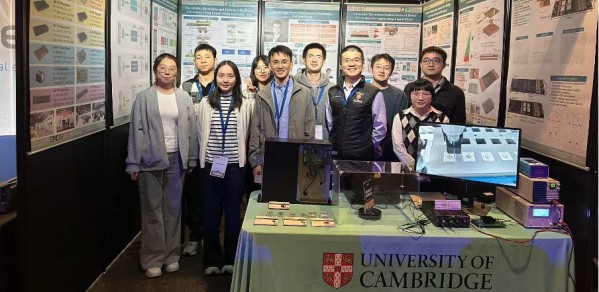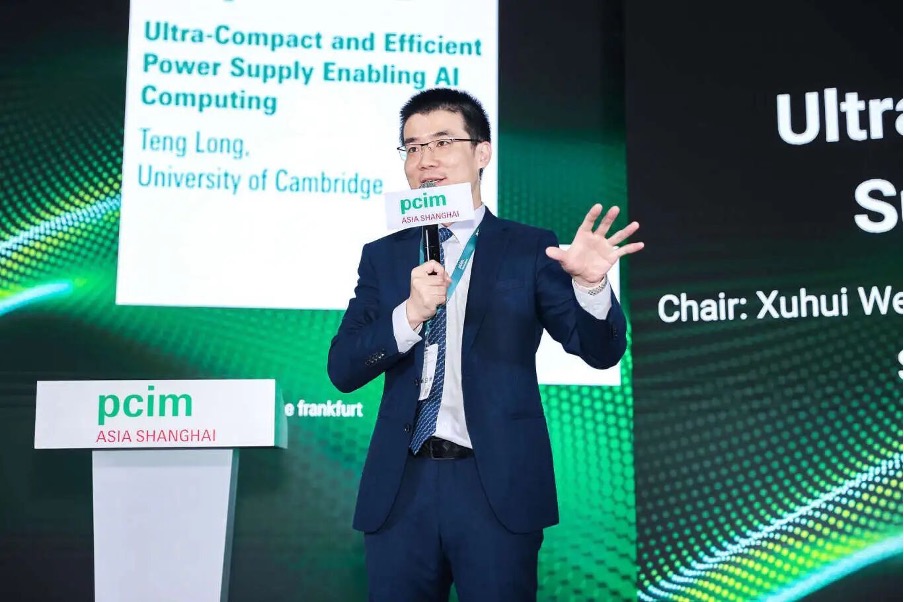
Cambridge Power Electronics Laboratory showcased research breakthroughs at leading power electronics conferences, ECCE Europe and PCIM Shanghai.
AI demands an unprecedented amount of electrical power. Every watt that fuels computation passes through power converters—each an opportunity for Power Electronics engineers and researchers to push the boundaries of efficiency and performance.
Professor Teng Long
The European flagship conference on power electronics and energy conversion, ECCE Europe, was held at the International Convention Centre in Birmingham from 31 August to 4 September. The event is Europe’s largest platform for integrating academia, industry, and research, with around 1,000 participants and 41 international exhibitors.
The Cambridge Power Electronics Laboratory, led by Professor Teng Long, presented an exhibition booth that highlighted world-leading research and its transformative impacts in power electronics, including live demonstrations featuring high-power-density DC-DC converters, alongside multiple prototypes of advanced power packaging technologies and innovative soft-switching control methods.
24-26 September at Asia’s leading power electronics event, PCIM Asia Shanghai 2025, held at the Shanghai New International Expo Centre, Professor Long gave a Keynote speech on ‘Ultra-Compact and Efficient Power Supply Enabling AI Computing’.
Research from Professor Long’s group is working to advance the transition to a more energy-efficient and sustainable future, with applications ranging from AI data centres to renewable energy integration and transport electrification.
The Cambridge Power Electronics Lab continues to drive innovation and foster collaboration across the global community. The group’s breakthroughs in data centre power supplies are laying the groundwork for practical adoption of high-density, high-efficiency technologies.

The Lab’s impact extends beyond academia through the spin-out company EPIC Power Ltd, which showcased real-world products and solutions at the conference, underscoring Cambridge’s leadership in translating research into industrial and societal benefits.
“AI demands an unprecedented amount of electrical power. Every watt that fuels computation passes through power converters—each an opportunity for Power Electronics engineers and researchers to push the boundaries of efficiency and performance." Professor Teng Long.
|
2026 New Electrical and Electronic Engineering MPhil Electrical and electronic systems are central to everyday life: this generates a national and international demand for specialist electrical and electronic engineers educated to a high level. Students on the course will become experts in electrical and electronic engineering by gaining industry-relevant skills, hands-on laboratory experience, systems leadership skills and technological expertise. Students will be exposed to Cambridge's innovation culture, encouraged to undertake interdisciplinary collaborations and will develop self-direction and originality in problem solving by planning and implementing research. |

